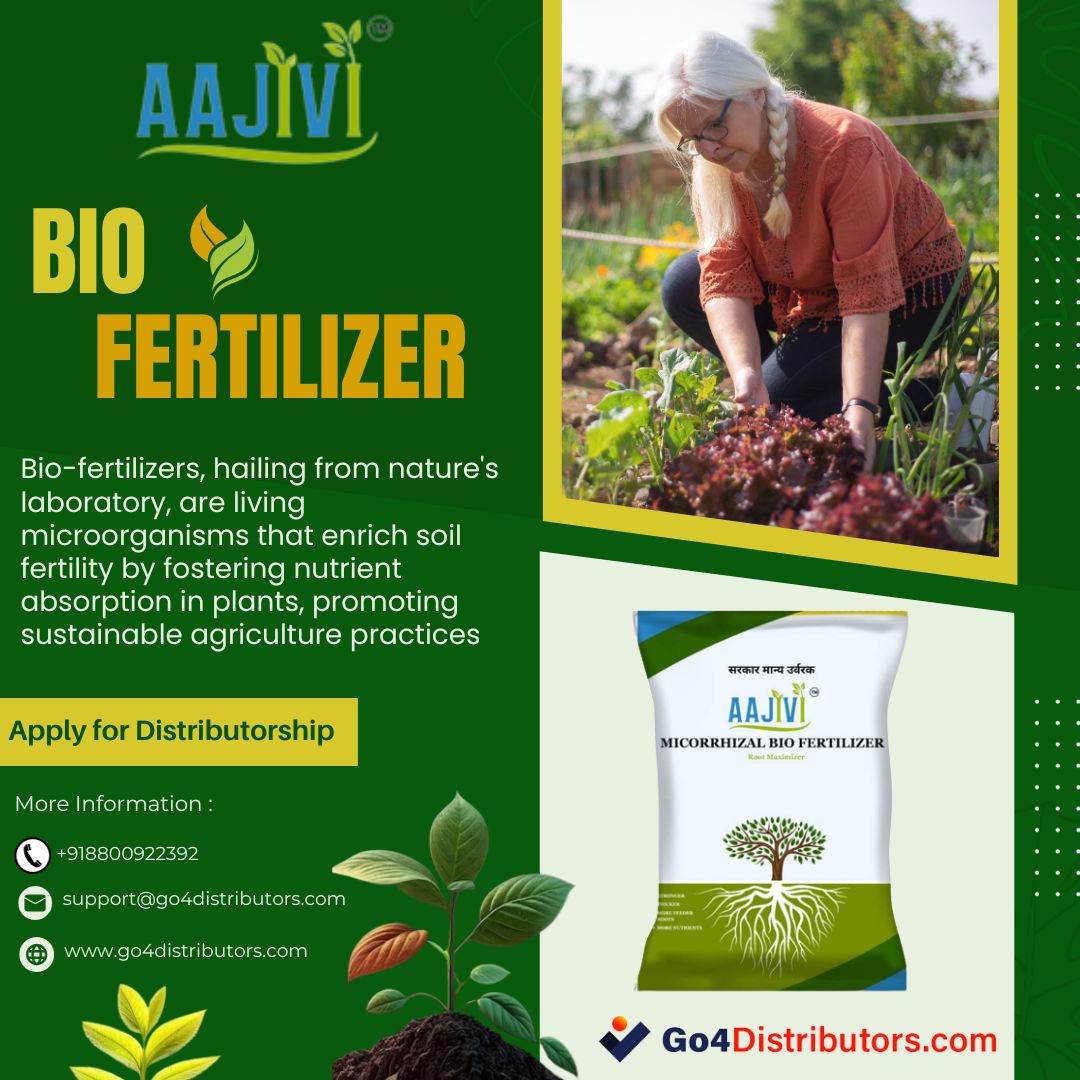One kind of organic fertilizer that is created using both natural ingredients and microorganisms is called bio-fertilizer. Their advantages over synthetic fertilizers are numerous for both farmers and gardens, and they are a sustainable and eco-friendly substitute. The following are a few benefits of using bio-fertilizers.
Better Soil Health: One of the primary advantages of using biofertilizers is that they may make the soil healthier. Bio-fertilizers can aid with soil structure, nutrient availability, and moisture retention by introducing helpful microbes into the soil. Increased food yields, healthier plants, and more environmentally friendly farming methods can result from this.
Enhanced Agricultural Yields: Biofertilizers have the potential to enhance crop yields as well. Bio-fertilizers can increase plant health and production by giving plants the nutrients they require to develop and flourish. Crop yields can be further increased by using the advantageous microorganisms found in biofertilizers to shield plants against pests and illnesses.
Enhanced soil fertility: Besides their immediate advantages, biofertilizers can also improve the soil’s long-term fertility. Bio-fertilizers can contribute to the development of a more varied and robust soil ecosystem by enhancing soil health and introducing advantageous microorganisms into the soil. Future crop yields may benefit from this as well as more environmentally friendly agricultural methods.
Better Uptake of Nutrients: Plants with the help of biofertilizers are more efficient in absorbing nutrients. For instance, plant roots and mycorrhizal fungus collaborate to extend the roots’ reach into the soil and promote the uptake of vital nutrients. Better plant health and disease resistance result from this enhanced nutrient absorption, which eventually raises agricultural output.
Decreased Chemical Dependency: Chemical fertilizers are frequently used extensively in traditional agriculture, which leads to soil erosion and water contamination. By lowering reliance on artificial chemicals, bio-fertilizers provide a sustainable substitute. Farmers that use bio-fertilizers improve the ecosystem by reducing the amount of chemicals that enter water sources and lowering pollution levels in the process.
Minimized Environmental Effect: One other benefit of employing biofertilizers is their significantly less environmental impact as compared to synthetic fertilizers. Because bio-fertilizers are natural products, they don’t pollute water or the environment or release dangerous chemicals into the air or water. They also don’t cause soil erosion. They are therefore a more environmentally friendly and sustainable choice for farmers and gardeners.
Cost-effectiveness: Compared to synthetic fertilizers, biofertilizers are typically more economical. They are frequently less expensive to create and apply to the soil because they are made of natural ingredients. This may help lower the total cost of fertilizing and lower the cost to farmers and gardeners.
Become a distributor of biofertilizers to start your own environmentally friendly business. By providing environmentally friendly options that improve soil fertility and encourage plant development, you may establish yourself as a leader in sustainable agriculture. You will be vital in bridging the knowledge gap between farmers looking for more environmentally friendly options and cutting-edge bio-fertilizers as a distributor. Take advantage of the chance to support ecologically friendly agricultural methods while developing a company that meets the expanding market for sustainable farming. As you grow your company as a distributor of biofertilizers, you can contribute to the movement for a healthier world and more resilient crops.
Conclusively, farmers and gardeners might reap several advantages by utilizing bio-fertilizers. Bio-fertilizers are an environmentally safe and sustainable way to fertilize gardens and crops since they are affordable, increase crop yields, improve soil fertility, and have a lower negative impact on the environment. Using bio-fertilizers will probably become even more common as the demand for organic and sustainable agriculture rises, supporting the wellbeing of our soils, crops, and world.

